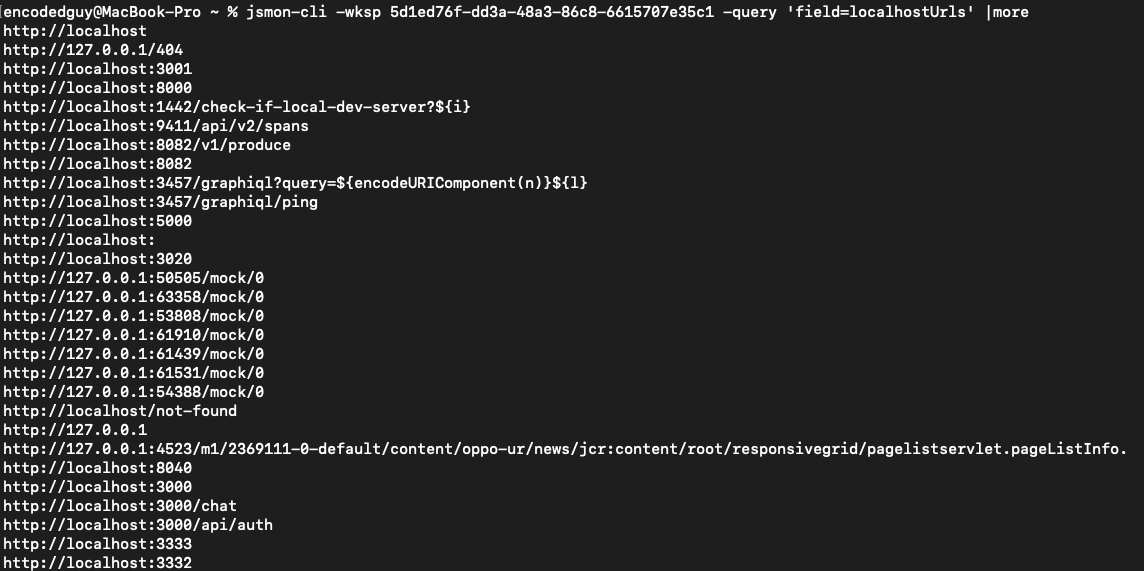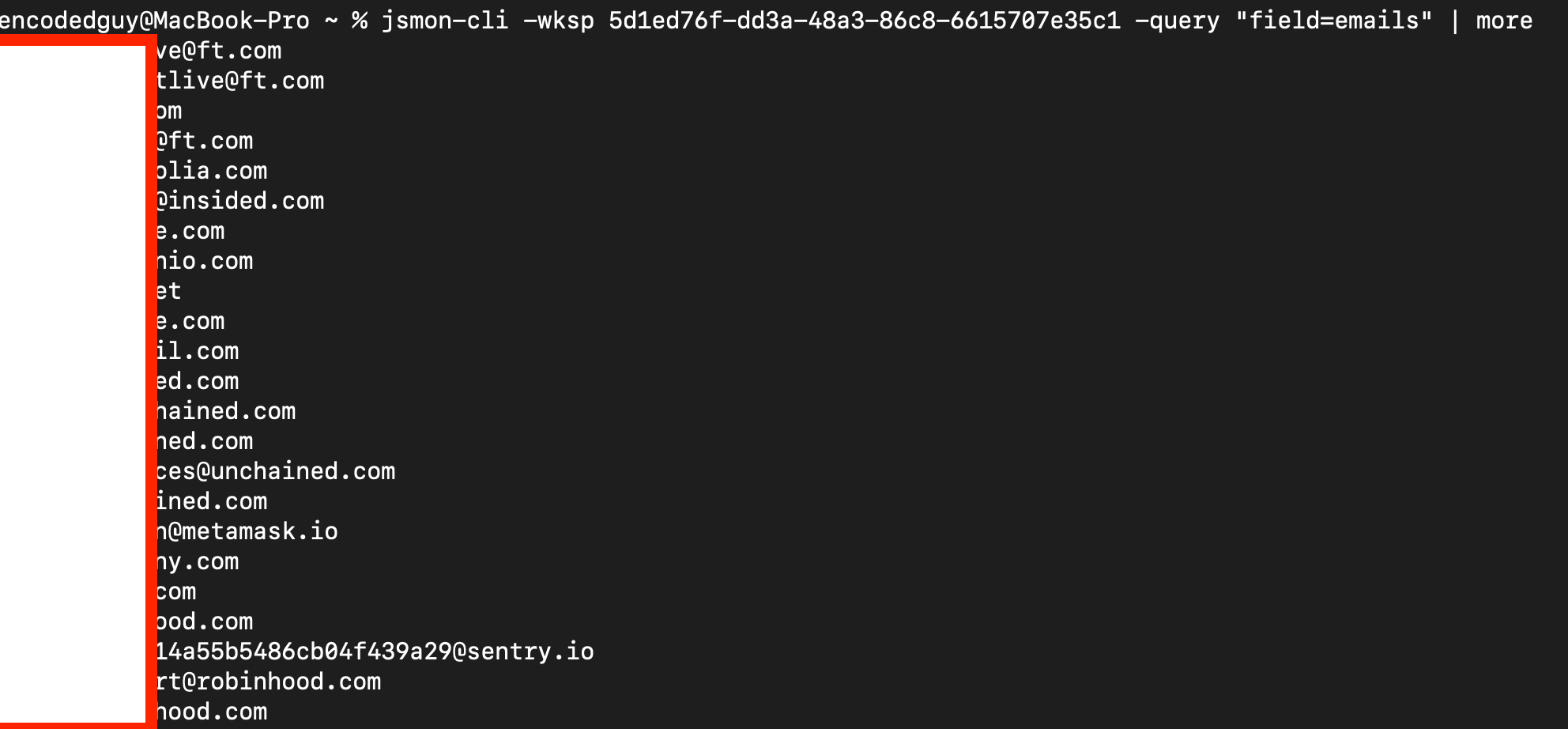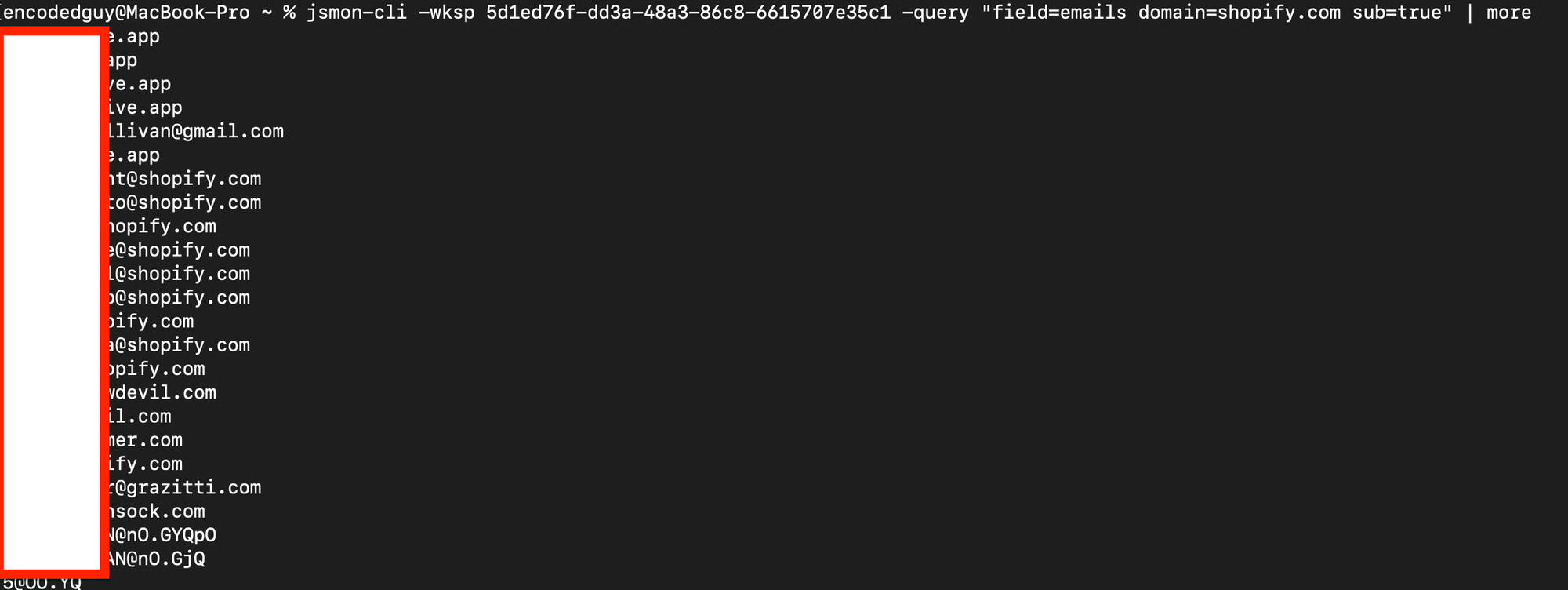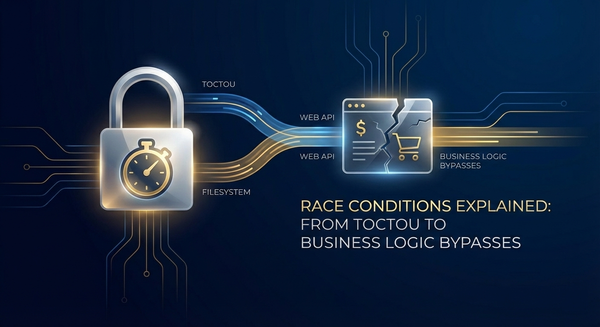Javascript Hacking on CLI for Pentesters (jsmon-cli)
jsmon-cli is a fast and convenient tool (API client) for your JS hacking powered by jsmon.sh. jsmon.sh is a JS security framework made for security enthusiasts, bugbounty hunters, penetration testers

jsmon-cli is a fast and convenient tool (API client) for your JS hacking powered by jsmon.sh.
What is jsmon.sh?
jsmon.sh is a JS security framework made for security enthusiasts, bugbounty hunters, penetration testers and security-focused enterprises to keep track of secrets, exposures and intel over the javascript files. As input, jsmon.sh can use a JS URL, a file (containing JS URLs), and even a domain name. The services present inside scans JS files for domains, URLs, API paths, GraphQL operations, client-side vulnerabilites, GUIDs, JWTs, IP addresses, emails, S3 domains, and 150+ api keys. Embedded IP rotation, report generation, JS monitoring, and advanced notification service are also present inside jsmon.sh.
What is jsmon-cli?
A command-line interface designed to act as an API client for jsmon.sh. Whatever you can do at the webapp, most of these features can be used via jsmon-cli. It calls the same API endpoints which the webapp uses. The public github repo for tool is at https://github.com/rashahacks/jsmon-cli.
Installation Instructions (jsmon-cli)
Ensure you have GoLang installed on your system. If not, download and install it from golang.org. Then, clone the repository and build the binary:
git clone https://github.com/rashahacks/jsmon-cli
cd jsmon-cli
go build -o jsmonAlternatively, you can install jsmon-cli directly using:
go install github.com/rashahacks/jsmon-cli@latestAuthentication (API Key)
In order to authenticate with your account via jsmon-cli. First, get your API key by logging in at the website. Once you are logged in, click on JSMON API, and go to API Keys. You can regenerate the API key if it gets expired, by clicking on regenerate icon.
Now, there are two methods to authenticate with jsmon-cli:
- Add your API key at ~/.jsmon/credentials file. At first line, just paste the API key. No dash, or curly braces are required. Paste the key in first line, that's it.

2. You can provide the API key to -key flag present in the CLI tool.
Usage
Usage of jsmon-cli:
jsmon-cli [flags]
Flags:
INPUT:
-u <URL> URL to upload for scanning.
-fid <fileId> File to be rescanned by fileId.
-f <local file path> File to upload (local path)
-d <domainName> Domain to scan
AUTHENTICATION:
-key <uuid> API key for authentication
UTILITY:
-ud Update jsmon-cli to the latest version
OUTPUT:
-jsi <domainName> View JS Intelligence data by domain name
-secrets View Keys & Secrets
-urls View all URLs.
-us int Number of URLs to fetch (default 10).
-files View all files.
-profile View user profile.
-curls View changed JS URLs.
ADDITIONAL OPTIONS:
-H <Key: Value> Custom headers (can be used multiple times).
-w <words> Comma-separated list of words to include in the scan.
-domains Get all domains for the user.
-urlsByDomain <domain> Search URLs by domain.
-count Get total count of overall analysis data.
-jsiJsmonId <ID> Get automation results by jsmon ID.
-jsiFileId <ID> Get automation results by file ID.
QUERY:
-query <field>=<value> Get all the data by Jsmon queries
check query guide here `https://bit.ly/4krnkEq`
Reverse JS search:
-rsearch <field>=<value> Search by field: emails, domainname, extracteddomains, s3domains, url, extractedurls, ipv4addresses, ipv6addresses, jwttokens, gqlquery, gqlmutation, guids, apipaths, vulnerabilities, nodemodules, domainstatus, queryparamsurls, socialmediaurls, filterdporturls, gqlfragment, s3domainsinvalid, fileextensionurls, localhosturls.Scan JS URL
Scans the JS file for JS reconnaissance, and API keys/secrets.
jsmon-cli -u https://example.com/main.js
Scan Domain
Extracts JS URLs of that domain recurisvely 3 times and then scans for JS reconnaissance and API keys/secrets.
jsmon-cli -d beta.jsmon.sh -wksp <WORKSPACE_ID>
Querying Data
-query flag can be used to query by fields, domain, page, and sub. Helps to get the data JS reconnaissance modules find inside JS files.
jsmon-cli -query "field=emails" -wksp <WORKSPACE_ID>
jsmon-cli -query "field=emails domain=shopify.com sub=true"
jsmon-cli -query "field=apiPaths domain=shopify.com" -wksp <WORKSPACE_ID>

jsmon-cli -query "field=extractedUrls page=2" -wksp <WORKSPACE_ID>
Look at the help menu for more commands.
jsmon-cli --help
Conclusion
jsmon-cli is a powerful and efficient tool that extends the capabilities of the jsmon.sh platform to the command line, making it easier for security professionals to automate and streamline their JS security tasks. With simple installation and flexible authentication methods, it offers a convenient way to leverage the robust features of jsmon.sh, including scanning, monitoring, and reporting, directly from your terminal.
How We Can Help?
In 2026, Security tooling must deliver context—not just alerts. Jsmon continuously maps and monitors your JavaScript and web attack surface, identifying real risks like exposed endpoints, leaked secrets, misconfigurations, and client-side vulnerabilities as they emerge.
By combining context-aware analysis with continuous monitoring, Jsmon dramatically reduces false positives and helps teams focus on issues that are actually exploitable.
Secure your attack surface in real time with Jsmon.
Thanks,
Inderjeet Singh



